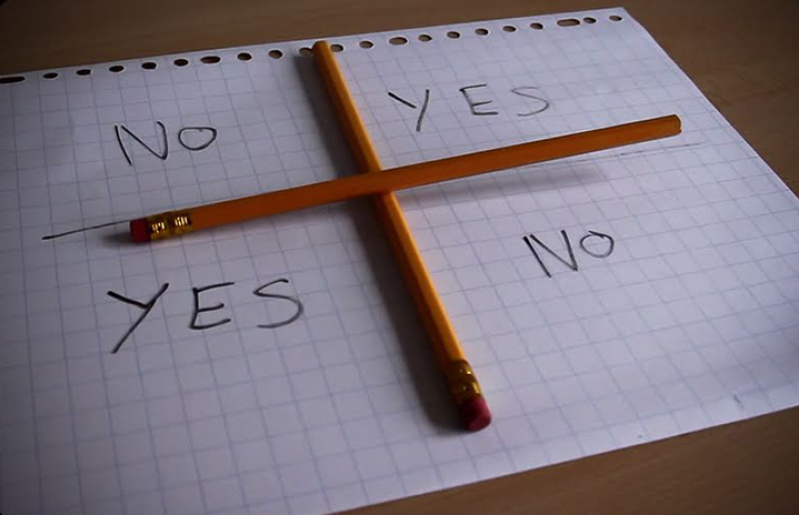
Teenagers across the United States and around the world are posting viral videos of themselves playing a pencil game called "Charlie, Charlie" that supposedly summons a Mexican demon to answer questions. Many within the Christian community have warned that summoning demons is highly dangerous regardless of the methods and should be avoided.
According to Travis Cartwright-Carroll of the Nassau Guardian, Myrtle McPhee, a principal at Anatol Rodgers High School in the Bahamas, called in pastors to pray for her school after she found that her students have been "experimenting with a homosexual Mexican demon" named Charlie through the pencil game. The students would write a yes and no grid on the paper and place the pencils in the middle.
"There are video recordings coming from C.C. Sweeting and one coming from C.V. Bethel where you saw where the pencil moved," McPhee said. "To me, it looks like it is real. You can't take chances with this."
McPhee added that she does not know how many students experimented with summoning the demon in question.
"Quite a number of students are experimenting with it in the presence of other children because they are doing it in the bathrooms or if they get an opportunity when they are alone in a class they experiment with it," McPhee said.
McPhee speculated to Carroll on the possible origins of the occult game.
"The concept is that Charlie is a homosexual," McPhee said. "That's how it came out. So when the students say anything that has a homosexual tone or any sexual tone, the pencil seems to move."
According to Carroll, the school principal asked about 20 pastors to walk the school grounds in the morning to pray for the school. The request for the pastors came from school guidance counselor Samantha Francis-Wells.
However, Andrew Griffin of the Independent contended that gravity, not a Mexican demon, was behind the pencils' movements. He noted that while no one actually touches the pencils, gravity helped push the pencils instead.
"The pencils have to be so finely balanced on top of each other that even the slightest movement from a breath or slightly tilted surface will push it around," Griffin wrote. "The arrangement of pencils that the game requires means that they'll always move, because it's just not a natural position for them to be in."
Griffin added that "pencils will always move if they're aligned correctly." However, he acknowledged that it was possible for "strange things" to happen to people who play the game; he backed up his assertion with scientific fact about the brain.
"That's the same thing that makes people more likely to hear strange noises when they're on their own or in the dark," Griffin wrote in regards to the brain's heightened state of fear. "In both of those situations, people are genuinely more in danger - so the brain think itself into a special fight or flight state that makes it extra-vigilant to noises, so that those dangers can be avoided."
Regardless of the context, McPhee told Carroll that she intends to "reach each child" about the dangers of "experimenting with social media," especially in regards to "conjuring the demon."
"If it's a demon spirit and so many persons have experimented with this demon spirit, then we need to guard against it," McPhee said.
As for how Christians should react to the "Charlie, Charlie" game, an Old Testament passage in the Book of Deuteronomy clearly warns everyone to avoid summoning demonic spirits in any manner.
"Let no one be found among you who sacrifices their son or daughter in the fire, who practices divination or sorcery, interprets omens, engages in witchcraft, or casts spells, or who is a medium or spiritist or who consults the dead. Anyone who does these things is detestable to the Lord; because of these same detestable practices the Lord your God will drive out those nations before you. You must be blameless before the Lord your God." (Deuteronomy 18:10-13, NIV)






